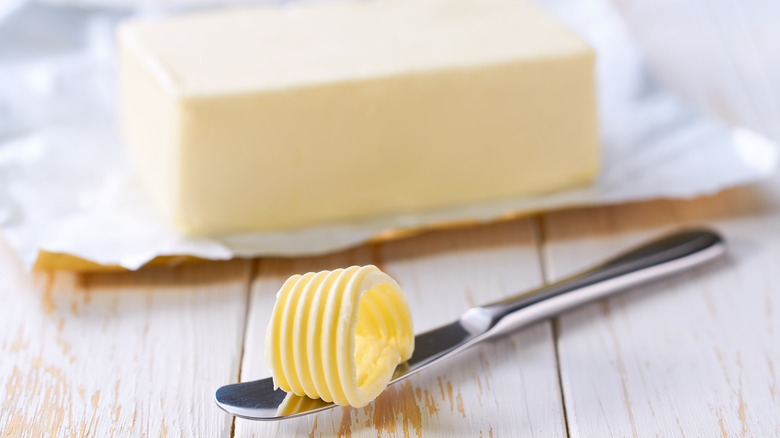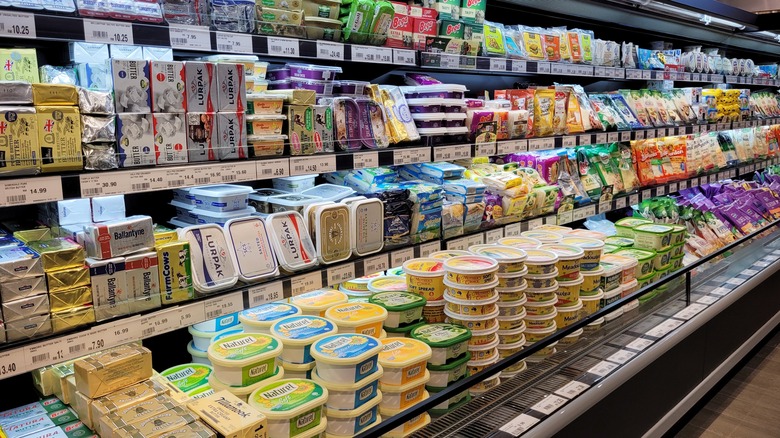An Expert's Advice For Shopping For Gourmet Butter
Butter is such a ubiquitous ingredient in the culinary world, and because we use it so often, we often purchase it without a second thought. It's easy to overlook, but the quality of the butter you use can tremendously impact your final dish. It's seriously important, especially for baking, and no one knows that better than Arielle Israel, co-owner of Black Box Bakery in Denver, Colorado. Israel knows what it takes to make buzz-worthy baked goods, and she knows that seeking out the best butter you can find is where to start.
The common denominator when choosing butter, no matter the dish, is its quality. When looking for quality butters, Israel said, "Generally I look for local companies, Irish or French ones." Why Irish or French? These butters are mainly favored because of their fat content. "The higher the butterfat content, the better the taste and color of the end product," she continued.
Israel knows that butter is the cornerstone of flavor and texture in baking. The temperature, fat content, and salt content of the butter you use can quite literally transform what you're baking — it directly affects the structure of the final product. A butter's temperature can make a dish too dense or overly fluffy, while its salt content can alter the dish's gluten content. Muffins might crumble dryly, cakes could deflate, and croissants will lack their signature flakiness if the correct butter isn't used.
Keep an eye on fat and salt content
USDA guidelines only require a minimum of 80% butterfat for a product to be sold as butter, whereas in Europe, the minimum is 82%. This discrepancy makes a major difference in the taste of the butter, since whatever percentage of the butter isn't fat mainly melts down to tasteless water. More fat makes for creamier butter with a richer flavor, whether you're spreading it straight onto toast or folding it into dough in a croissant recipe.
Aside from sticking with European high-fat butter, there's another important factor to look out for, and that's salt. Arielle Israel is emphatic: "DO. NOT. BUY. SALTED. BUTTER for cooking or baking!" There are instances when you should use salted butter, but in baking, it's crucial to control salt content. Moreover, salted butter typically contains 10% more water than unsalted butter does, which is a pretty significant distinction. The high water content of salted butter can unpredictably affect the way gluten forms during the baking process, leaving you with dense or mushy pastries, or overly tough dough.
Irish and French butters are easy to find in stores, though they may be slightly pricier than American butters. Irish butter tends to be the most popular of the European butters sold in grocery stores, especially Kerrygold, which is the second most purchased branded butter in America. It's a grass-fed butter, which generally has more nutritional value and an overall better taste, so keep an eye out for this on the label as well.

